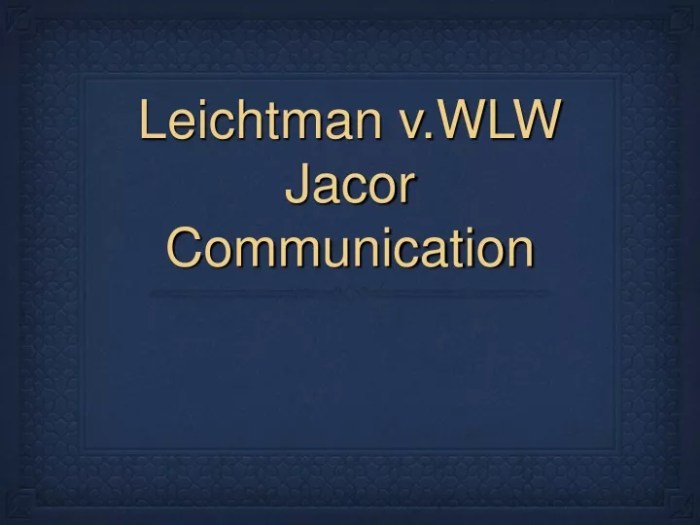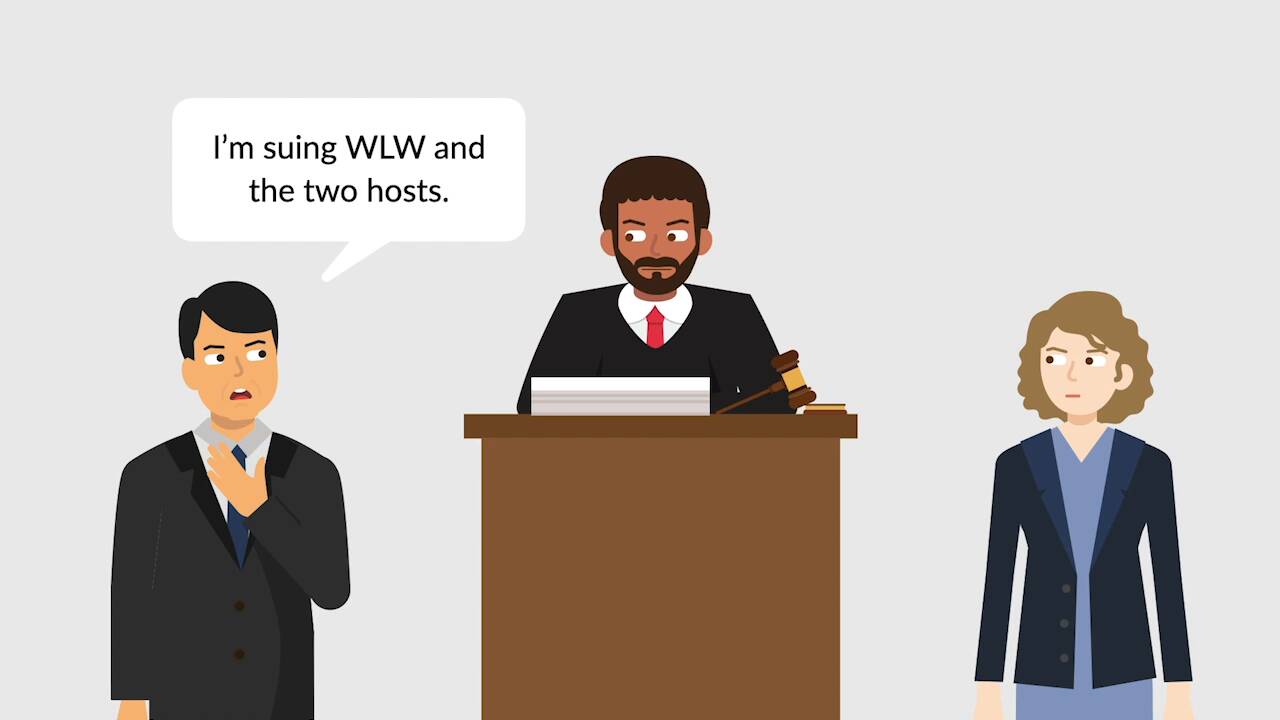Leichtman v. WLW Jacor Communications Inc. is a pivotal case in media law that explores the complex interplay between freedom of speech, defamation, and the First Amendment. This case has had a profound impact on the legal landscape surrounding media outlets and their responsibility for the content they broadcast.
The case stems from a series of allegedly defamatory statements made by a radio talk show host employed by WLW Jacor Communications Inc. against a local attorney, Marvin Leichtman. Leichtman subsequently filed a lawsuit against the company, alleging that the statements damaged his reputation and caused him emotional distress.
Legal Framework

The legal framework governing Leichtman v. WLW Jacor Communications Inc. encompasses various statutory and case law provisions:
- First Amendment Rights:The First Amendment of the U.S. Constitution protects freedom of speech and the press, including the right to criticize public figures.
- Libel Law:Defamation, specifically libel, involves the publication of false and damaging statements that harm a person’s reputation.
- Actual Malice:For a public figure to prevail in a defamation suit, they must prove that the defendant published the statements with “actual malice,” meaning they knew or recklessly disregarded the falsity of the statements.
Factual Background: Leichtman V. Wlw Jacor Communications Inc

The case arose from a series of broadcasts by WLW Jacor Communications Inc., a radio station owned by Jacor Broadcasting Company. The broadcasts, hosted by talk show host Richard Leiby, made several negative comments about attorney Mark Leichtman, including accusations of unethical behavior and incompetence.
Leichtman, a public figure, filed a defamation suit against WLW Jacor and Leiby, alleging that the statements were false and damaging to his reputation.
Procedural History
The case was initially filed in state court but was later removed to federal court. The district court granted summary judgment in favor of WLW Jacor, finding that Leichtman had not presented sufficient evidence of actual malice.
Leichtman appealed to the Sixth Circuit Court of Appeals, which reversed the district court’s decision and remanded the case for trial. The jury found in favor of Leichtman, awarding him $2.3 million in damages.
Arguments of the Parties
Plaintiff’s Arguments, Leichtman v. wlw jacor communications inc
- The statements made by WLW Jacor were false and defamatory.
- WLW Jacor and Leiby acted with actual malice by knowingly or recklessly disregarding the falsity of the statements.
- The statements caused significant damage to Leichtman’s reputation and professional standing.
Defendant’s Arguments
- The statements were protected by the First Amendment because they were made about a public figure.
- WLW Jacor and Leiby did not act with actual malice.
- The statements were based on information from reliable sources.
- Leichtman failed to prove that he suffered any damages as a result of the statements.
Court’s Analysis

The court analyzed the case under the actual malice standard established in New York Times Co. v. Sullivan. The court found that Leichtman had presented sufficient evidence to support a finding of actual malice.
The court also rejected WLW Jacor’s arguments that the statements were protected by the First Amendment, finding that they were not a matter of public concern and that Leichtman’s reputation had been damaged.
Impact and Significance
The decision in Leichtman v. WLW Jacor Communications Inc. had a significant impact on media law and freedom of speech.
The ruling made it clear that public figures have a high burden of proof in defamation cases and that the First Amendment does not provide absolute protection for speech that is false and damaging.
The case also highlighted the importance of actual malice in defamation suits and the need for journalists to carefully verify the accuracy of their reporting.
Questions and Answers
What was the central issue in Leichtman v. WLW Jacor Communications Inc.?
The central issue was whether the statements made by the radio talk show host constituted defamation and violated Leichtman’s First Amendment rights.
What was the outcome of the case?
The court ruled in favor of Leichtman, finding that the statements were defamatory and had caused him harm.
What impact did the case have on media law?
The case established important precedents regarding the liability of media outlets for defamatory statements made by their employees.